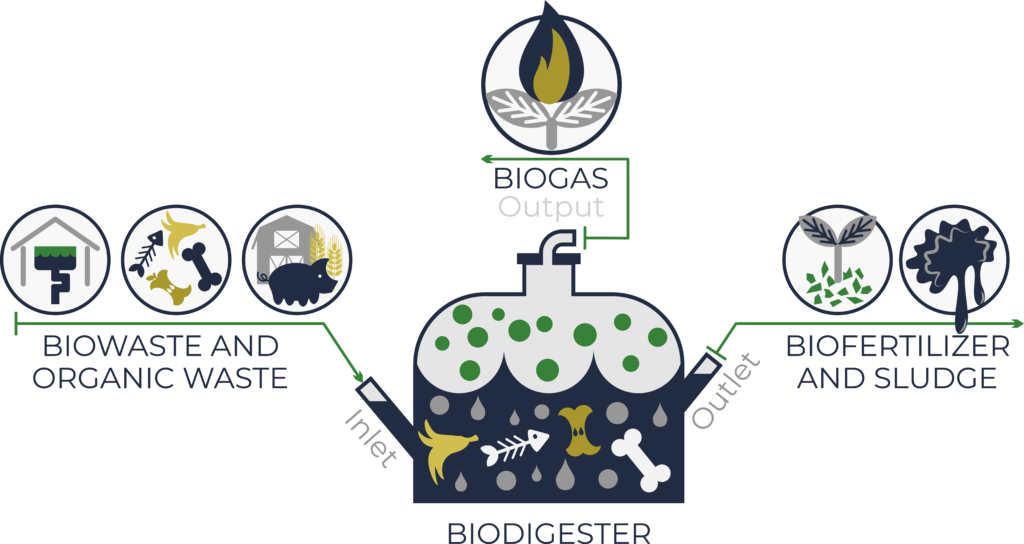Farming is key to a sustainable future.
Farming in the 21st century is evolving to play a crucial role in our sustainable future, by addressing the significant greenhouse gas emissions resulting from modern agricultural practices.
While essential for human sustenance, modern farming has evolved to add to global greenhouse gas emissions, especially methane, due to the intensified methods required for profitable and sustainable farming.
By converting organic waste into biogas through anaerobic digestion, farmers can generate renewable energy while simultaneously reducing methane emissions.
To combat these challenges, a wider green revolution is necessary, focusing on the reuse of waste materials and the adoption of sustainable practices throughout the agricultural sector. By implementing innovative strategies, farmers can not only mitigate the environmental impact of their activities but also contribute to the overall reduction of greenhouse gas emissions.
Benefits of Biogas/Anaerobic Digestion
- Efficient waste management
- Renewable energy generation
- Nutrient-rich digestate for agriculture
- Methane emissions reduction
- Odor and pollution control
- Circular economy approach
It’s important to note that while biogas/anaerobic digestion systems are valuable in terms of waste management and energy production, they should be part of a comprehensive approach to sustainable practices. Alongside implementing these systems, prioritizing energy efficiency measures and adopting other environmentally-friendly practices will further enhance the overall impact in reducing carbon footprint and promoting sustainability.

Who can Benefit:
Biogas/Anaerobic digestion offers numerous benefits for a wide range of industries and sectors. Here are some examples:
- Generate renewable energy from agricultural waste
- Reduce dependency on fossil fuels for farm operations
- Produce nutrient-rich digestate for use as organic fertilizer
- Improve waste management practices and reduce environmental impact
- Converting food waste and organic byproducts into biogas
- Reducing disposal costs and waste management challenges
- Lowering energy costs by utilizing biogas for heat and electricity
- Enhancing sustainability initiatives and environmental stewardship
- Generating energy to power plant operations
- Reducing reliance on external energy sources
- Minimizing greenhouse gas emissions from wastewater treatment processes
- Managing biosolids and organic waste more efficiently
- Producing renewable energy for community buildings and facilities
- Reducing landfill waste and associated environmental impacts
- Creating job opportunities in the renewable energy sector
- Promoting sustainable development and energy independence
Our Biogas CV
Over the last ten years we have had the pleasure of collaborating with a diverse range of farmers across the UK & Ireland in our collective pursuit of these goals. The road to a greener economy is not always easy, but with our shared knowledge and experience in this sector, we are uniquely positioned to make the transition journey, you are about to undertake, as attainable and successful as possible.

